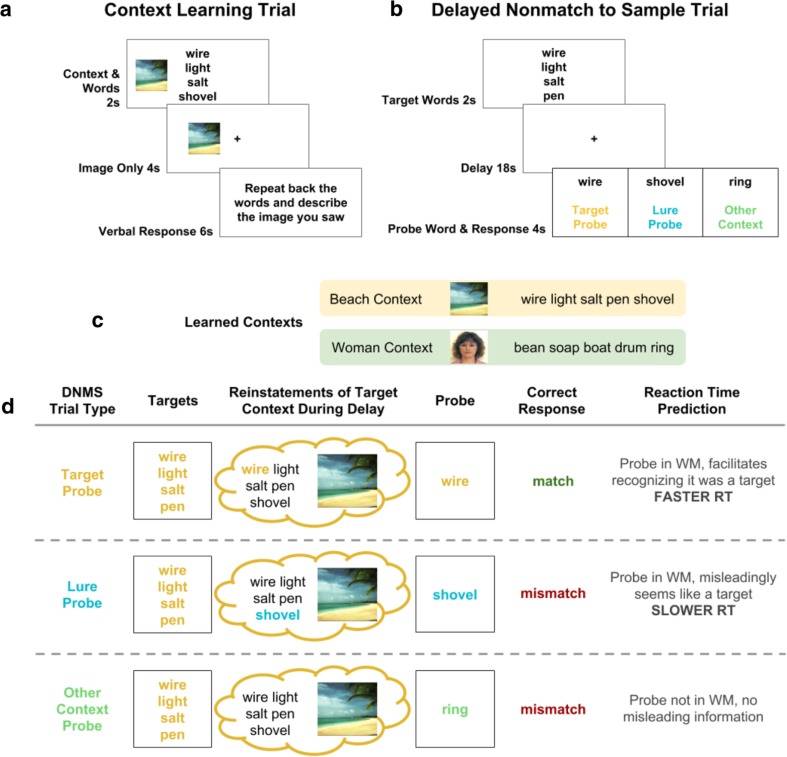Fig. 3.
Experiment 2: DNMS task with added context. a In the context-learning phase, participants studied four sets of words, each set paired with a unique context picture.b In the testing phase, participants performed a delayed-nonmatch-to-sample (DNMS) task, in which they remembered four target words across an 18-s delay. After the delay, they were shown a single probe word and asked whether that word was not one of the four they had just seen. Response times were recorded and used as a measure of whether the participants’ performance had been affected by context information reinstated from episodic memory. c Subsets of two example contexts are presented for illustrative purposes. d We hypothesized that the contents of working memory are influenced by reinstatements from episodic memory. These reinstatements activate working-memory representations of trial-irrelevant words that were linked to the target words during the context-learning phase. We predicted that, when the probe word was one of the targets, participants would be fastest to respond because the target probe should clearly match the content of working memory, allowing the search process to terminate quickly. For nontarget probe trials, we predicted participants would respond more slowly because they needed to exhaustively search through the contents of working memory to decide to reject the probe. Within nontarget probe trials, we predicted participants would be slowest to respond to lure probes, because these probes would match the context information in working memory elicited by the target words but mismatch the actual target words. Because this conflicting evidence was not present in other-context probe trials—the probe word did not match the context information or target words in working memory—we predicted participants would be less impaired on other-context probe trials

